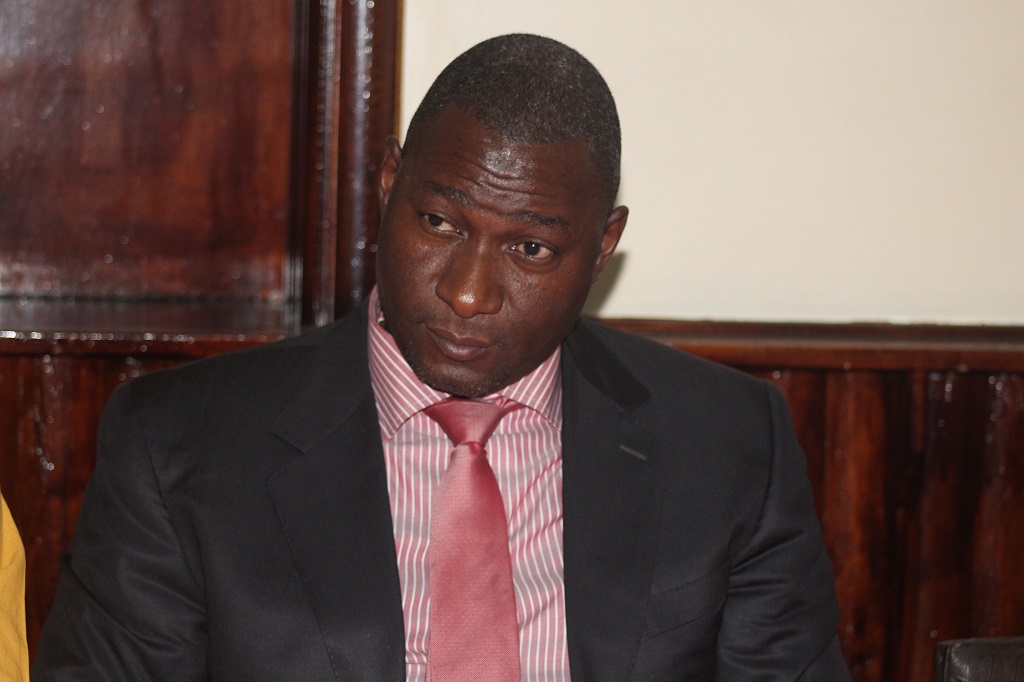GOVERNMENT is "encouraging" mobile phone operators to ensure that their digital financial services are interoperable by April 2018, failure of which they would be compelled to comply.
The country's three mobile phone operators - NetOne, Telecel and Econet - have mobile money transfer services but subscribers cannot send or receive money from across the networks.
Information Communication Technology and Cyber Security Minister Supa Mandiwanzira told The Herald Business yesterday that there is no reason for mobile phone firms not to link their digital financial services.
Minister Mandiwanzira said the mobile phone players should engage each other and comply with the request, failure of which, "force" would be used.
"Really, there is no reason (for them not to be interoperable). I think there was just no willingness to do so and we have appealed to them, to just please understand the inconvenience that the public is facing; that they cannot send money to different networks.
"Therefore, we are encouraging them to do the right thing and assist the transacting public. We don't want to use force all the time. We expect that there should be appreciation that this is a very necessary service and that it must happen," said Minister Mandiwanzira.
The remarks by Minister Mandiwanzira follow the stoic refusal by mobile money transfer firms to allow for interoperability of their systems, amid reports that others don't want to give competitors a platform to be out-competed.
Since 2014, there has been tension between mobile phone operators after Econet allegedly blocked its agents to act on behalf of Telecash and OneMoney. Econet denied having "exclusive contracts" with its mobile money agents.
The Reserve Bank of Zimbabwe waded into the dispute, after Telecel had reportedly lodged a complaint with the Postal and Telecommunications Regulatory Authority of Zimbabwe (Potraz). Potraz is the regulator of telecommunications firms.
Related Stories:
RBZ said such exclusive agreements or covenants with mobile money agents - if indeed they existed - were likely going to have an adverse effect on competition, which would be detrimental to the smooth operation of payment systems in the country.
However, since then, it has remained impossible to move money across networks, while it is possible to send money to unregistered subscribers - albeit at punitive costs. This has forced citizens to purchase sim cards from all the three mobile phone operators, to access the various services they offer.
In a statement released over the weekend, Minister Mandiwanzira said Government had "noted with concern that whilst it is possible to send money to an unregistered customer on another network, the Unstructured Supplementary Service Data (USSD) platforms for operators are not fully integrated hence wallet to wallet funds transfer have not yet been integrated".
"The lack of interoperability of the mobile money platforms of the networks is a major barrier to effective competition and stalls further progress in the development of mobile money services.
"Interoperability also brings convenience to customers and the ease of doing business. In the event that there is no interoperability across all networks by the set date of April 1, 2018, the Government will take the appropriate measures to enhance compliance," he said.
The country's mobile phone firms seem to have deep-seated differences among themselves, and have in the past refused to share infrastructure. A law has since passed to make it mandatory for them to share infrastructure.
- the herald
 OK Zimbabwe posts US$17,8 million loss
OK Zimbabwe posts US$17,8 million loss  Hichilema meets Chivayo
Hichilema meets Chivayo  Millions celebrate Diwali festival in India
Millions celebrate Diwali festival in India  Econet Zimbabwe to delist from ZSE
Econet Zimbabwe to delist from ZSE  Gold edges up as traders await guidance
Gold edges up as traders await guidance  Mnangagwa fires Chitando, appoints Polite Kambamura
Mnangagwa fires Chitando, appoints Polite Kambamura  Young Investment Professional (YIP) Graduate Programme 2019
Young Investment Professional (YIP) Graduate Programme 2019 











 Young Investment Professional (YIP) Graduate Programme 2019
Young Investment Professional (YIP) Graduate Programme 2019
Editor's Pick